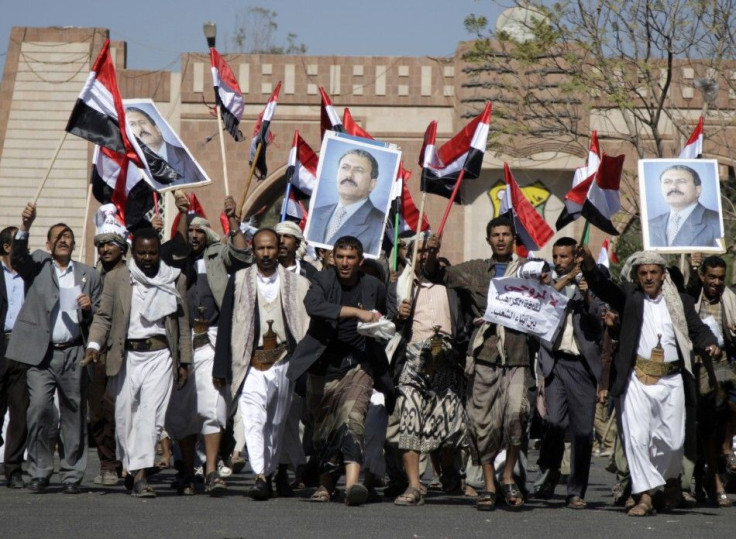Deaths expected to escalate violence, censorship continues in Middle East

The wave of protests across the Middle East countries inspired by the ouster of autocrats in Egypt and Tunisia have taken a violent turn. As authorities in the protests-torn Arab countries continue to censor media and disrupt communication, deaths and the consequent funerals are expected to escalate the unrest.
Yemen
Thousands of anti-government demonstrators clashed with supporters of the government in Yemen's capital, Sana. Fistfights on the streets marked the seventh day of unrest across the nation over the demand for the removal of President Ali Abdullah Saleh. According to local media reports, a protester was killed in the southern port city of Aden, taking the death toll to three.
Libya
After Thursday's 'Day of Rage', Libya continued to boil over. A human rights advocacy group claimed that as many as 24 people have been killed so far in the clashes. A graphic video of a shooting has also cropped up on YouTube, reflecting the ground reality of the ongoing protests. As the Libyan crackdown continues, funerals for the people killed in the clashes are expected to turn grounds for further clashes.
Bahrain
In Bahrain as well, funerals for people killed in the anti-government demonstrations in the capital, Manama a day before, took place amid fears the funerals could be a flashpoint for more violence. On Thursday, the military took control of the capital. The forces stepped in after riot police started firing rubber bullets and hurled tear gas at an anti-government protest camp. According to the latest inputs, at least five people have been killed and over 230 wounded.
Censorship: Media takes a hit
Meanwhile, media censorship and communication disruption continued in all the countries. The New York-based Committee to Protect Journalists (CPJ) has accused the authorities in Bahrain and Yemen of launching physical attacks on the media.
Authorities in Bahrain and Yemen have escalated their physical attack on the press in order to censor coverage of spreading anti-government protests, the CPJ said.
Governments throughout the Middle East and North Africa cannot deny their citizens coverage of these momentous events across the region, said Mohamed Abdel Dayem, CPJ's Middle East and North Africa program coordinator. Local and international media must be allowed to cover the news.
Several journalists also reported today that Bahraini authorities are barring journalists from entering the country, the CPJ statement added.
Throwing light on the situation in Bahrain, New York Times columnist Nickolas Kristof posted on Twitter, Bahrain barring journalists from entry at airport. King Hamad doesn't want witnesses to his brutality.
CPJ, the independent nonprofit organization that promotes press freedom and defends the rights of journalists, is keeping a track of the journalists attacked in the Middle East while covering the pro-democracy demonstrations. The latest incident has been reported from in Iraq, where at least two journalists were attacked by guards for the Kurdistan Democratic Party's building.
Furthermore, Bahrain seems to have followed the footsteps of Iran which slowed broadband speeds in wake of the pro-democracy protests. Data collected by Arbor Networks has revealed quantitative confirmation that Internet traffic in Bahrain has suffered a massive drop.
© Copyright IBTimes 2024. All rights reserved.





















